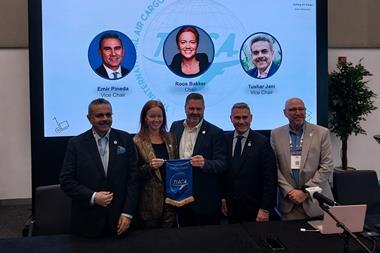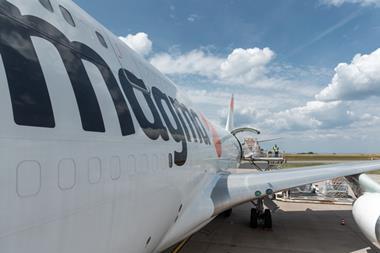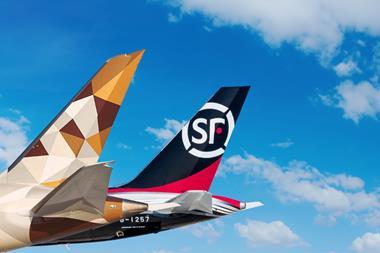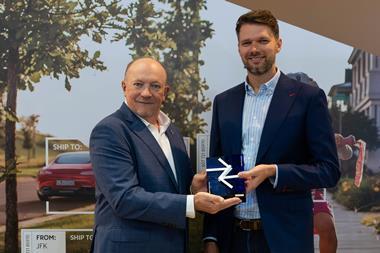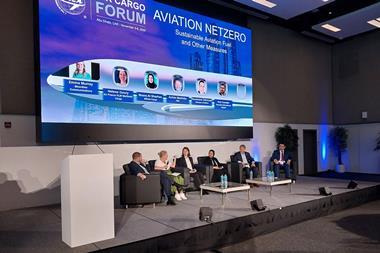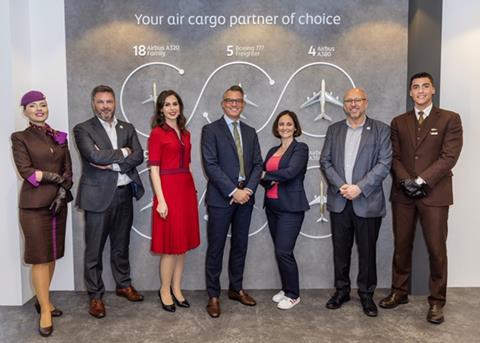
The International Air Cargo Association (TIACA) has given Etihad Cargo, the cargo and logistics arm of Etihad Airways, an advanced rating for a key criterion in a BlueSky Sustainability Verification Programme assessment.
The Abu Dhabi-based UAE flag-carrier was the first Middle Eastern airline to join the programme, which assesses the sustainability performance of air cargo carriers.
More specifically, TIACA launched the BlueSky, a sustainability assessment, validation and verification scheme, to track airlines’ sustainability progress, to allow them to benchmark against peers and to accelerate the industry’s transformation.
Etihad Cargo completed an evidence-based desktop verification process via which independent validators assessed the freight carrier’s sustainability programmes against eight key objectives.
These eight objectives can be grouped under three main themes – environment, society, and culture and leadership – and encompass 30 specific actions the air cargo industry is expected to prioritise.
Etihad Cargo received an advanced rating against the decarbonisation objective, highlighting its progress in investing in and using sustainable aviation fuel (SAF), upgrading aerial fleets and ground vehicles to reduce carbon emissions, reducing energy consumption across its operations, and optimising fleet utilisation.
Etihad Cargo also scored highly in its performance in the area of partnerships. The carrier has made significant progress in its decarbonisation programme, moving towards delivering on its pledge to achieve net-zero carbon emissions by 2050, in large part through partnerships and industry collaboration, it said.
In addition to signing an airline collaboration agreement with Finland-based sustainable fuels provider Neste to promote the update of SAF, the airline became the first international airline to receive a delivery of SAF in Japan and is working with other global suppliers to secure SAF.
Etihad Cargo has also joined forces with Spain-based sustainable mobility and energy specialist Cepsa to support research and development into SAF and the development of more ecofriendly energy alternatives to aviation jet fuels.
The carrier’s efforts to protect flora and fauna were recognised by a strong rating for biodiversity protection.
Finally, the ratings Etihad Cargo achieved against other criteria, including waste management, supporting economies, livelihood and social well being, efficiency and workforce, demonstrate the “significant progress” it is making towards achieving its sustainability targets, the carrier said.
Its senior vice president – global sales & cargo, Martin Drew, commented: “The assessment results Etihad Cargo has achieved are a great achievement.”
But, “While the air cargo industry is moving in the right direction, there is still much to do if the sector is to reach its net-zero targets by 2050.
“Etihad Cargo is committed to establishing partnerships and developing initiatives that will contribute to a greener future for the air cargo community, and the BlueSky Sustainability Verification Programme is a valuable tool in identifying strengths and areas for improvement.”
Drew continued: “The results will act as an enabler for Etihad Cargo to further advance its sustainability efforts, and the carrier is actively targeting year-on-year progress.”
Glyn Hughes, TIACA’s director general, said that the freight carrier achieving an advanced rating in the critical area of decarbonisation is “a testament to the strategic focus and successful execution of a number of programmes and initiatives designed to reduce the impact on the environment while continuing to serve global air cargo markets”.
The BlueSky assessment process is expected to be undertaken every two years.
In March, TIACA said that more action is needed to ensure that SAF decarbonisation targets are met across the aviation industry as a whole.
At its March 7 media day, it confirmed that sustainability will continue to be one of its major priorities in 2023.
TIACA said that new SAF incentive and investment programmes need to be developed to meet future production and usage targets.






